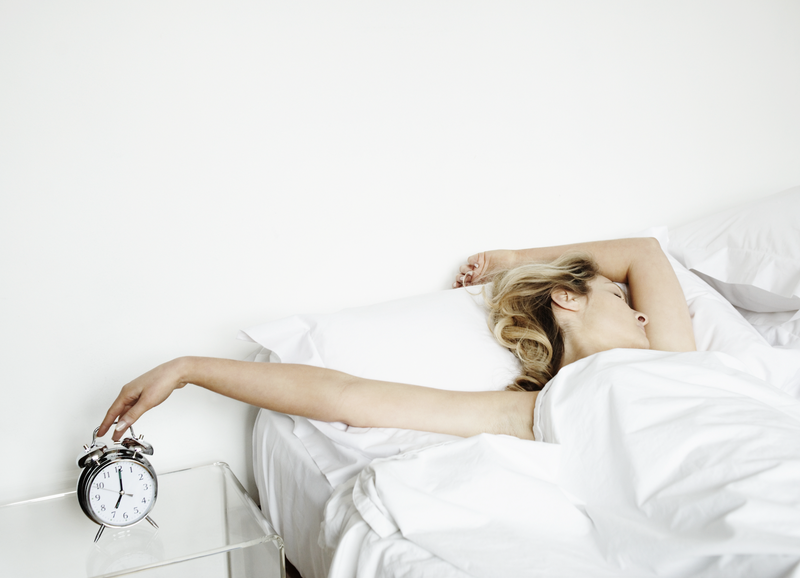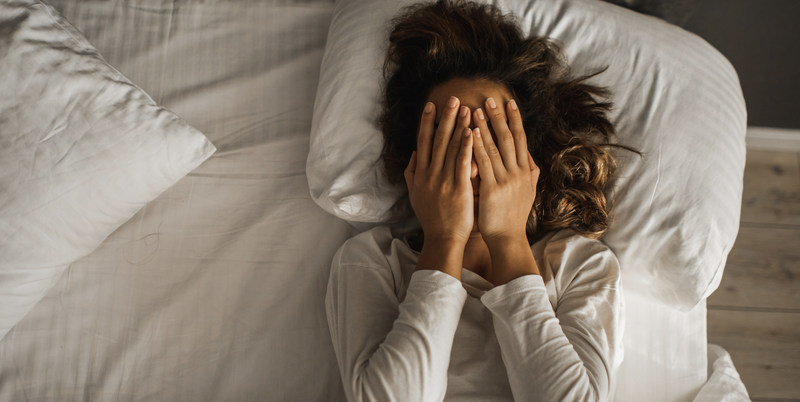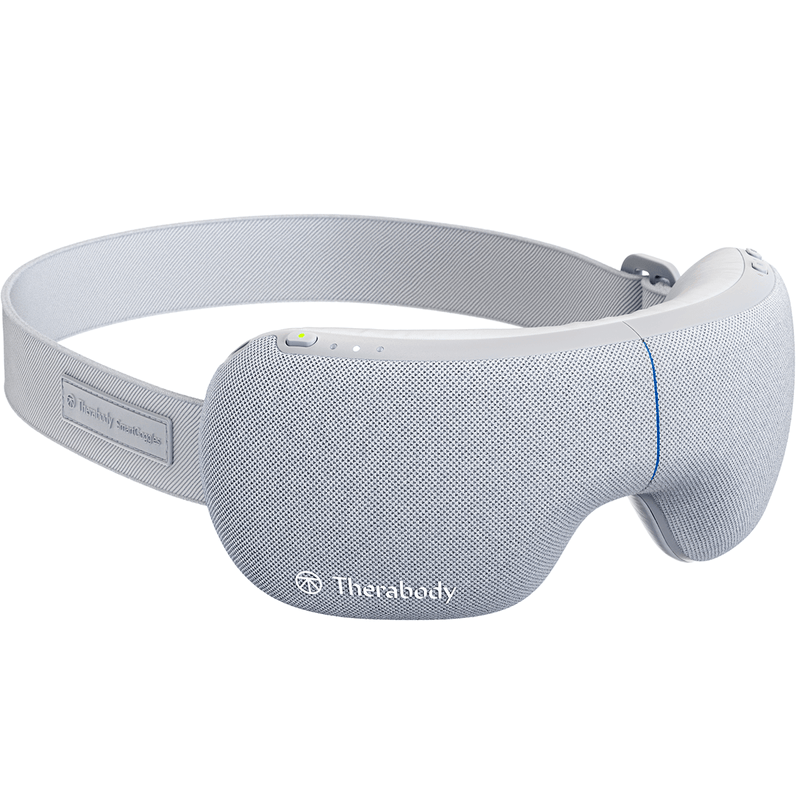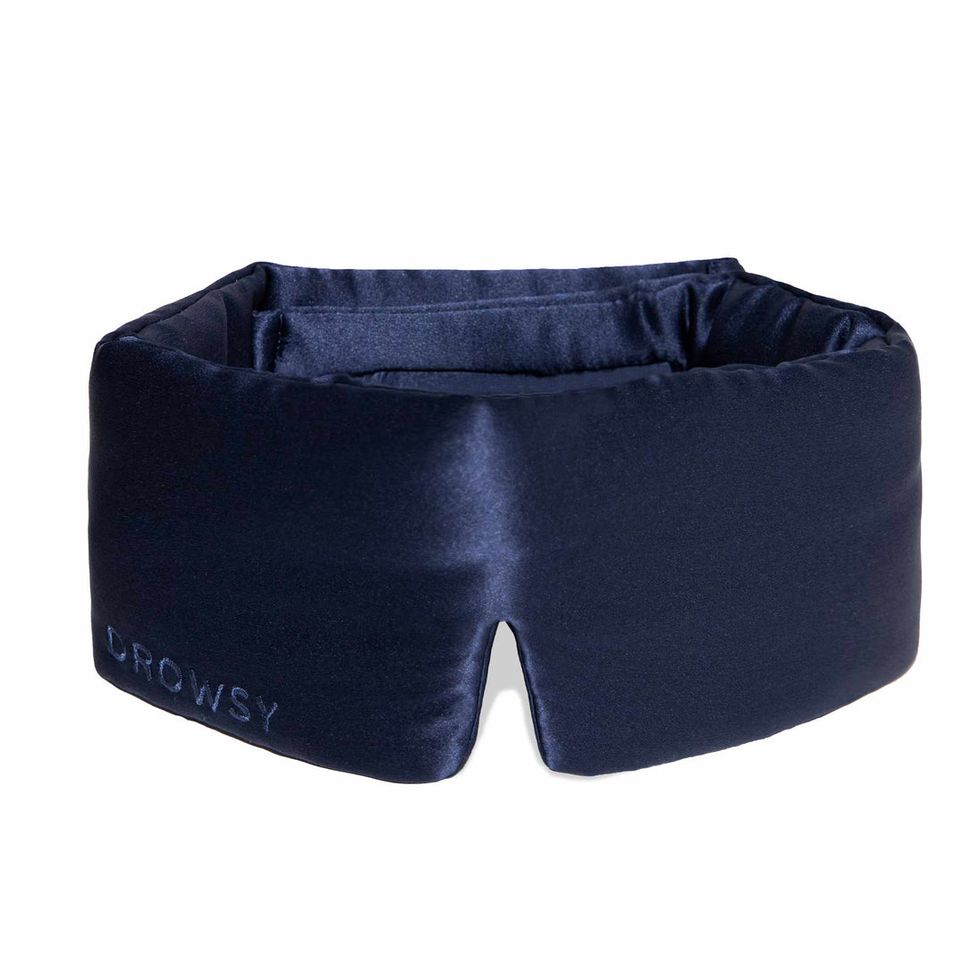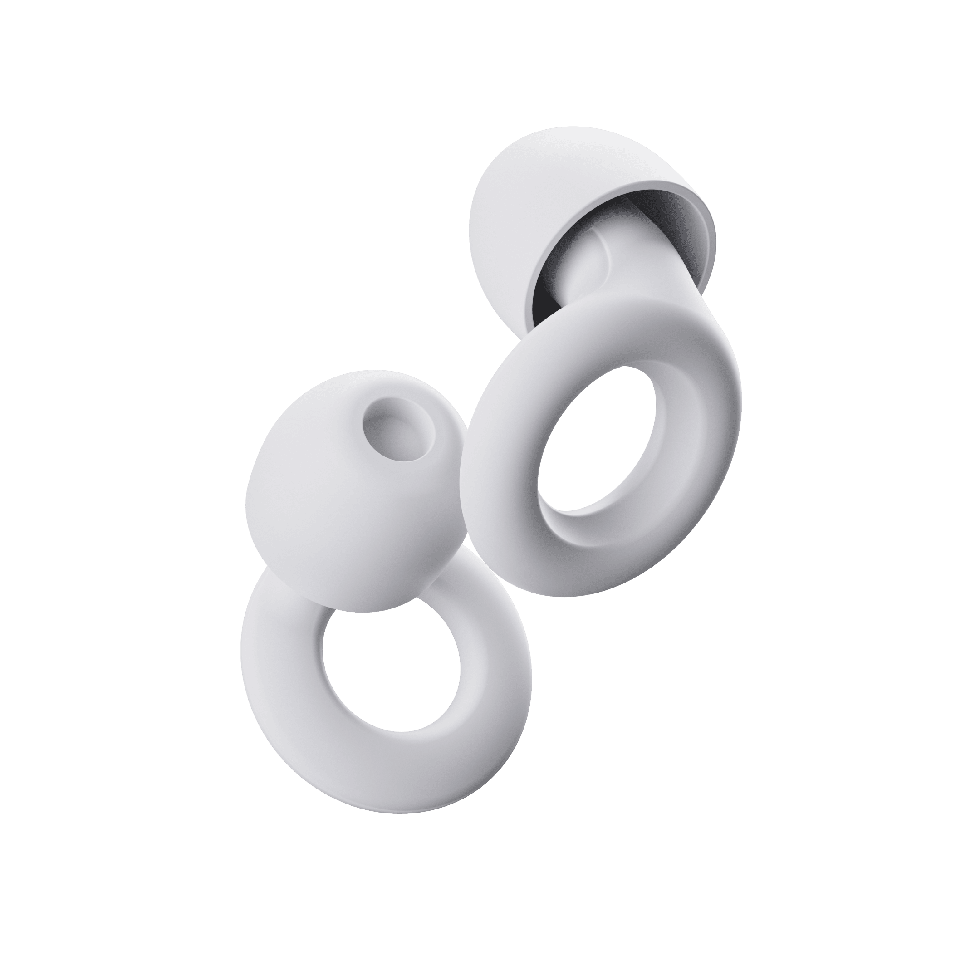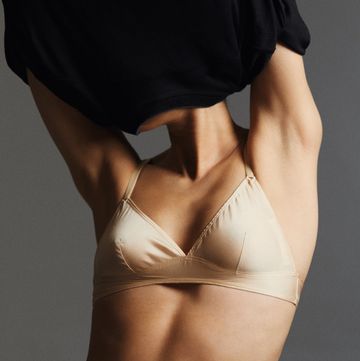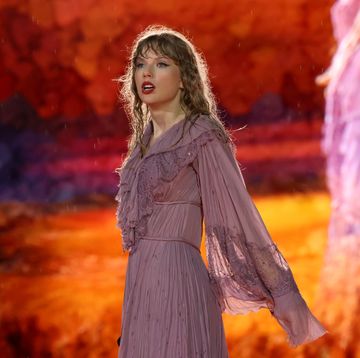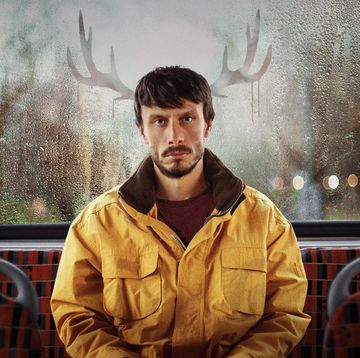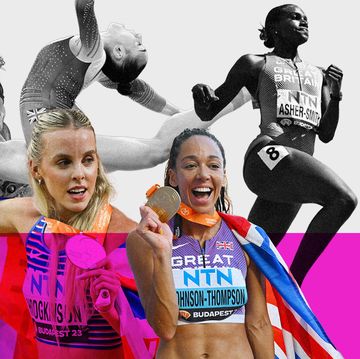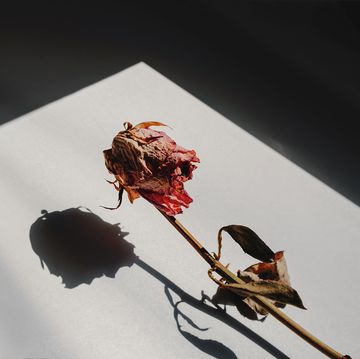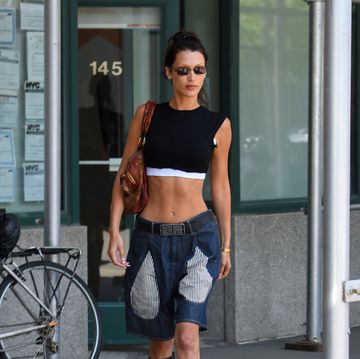It’s 1am and I’m watching a video on TikTok titled ‘ASMR - Fall Asleep In 5 Minutes’. The last resort after a spritz of pillow spray, a gulp of CBD oil and 10 painful minutes on an acupressure mat proved unsuccessful. A bright iPhone haze illuminates my face in the darkness as I attempt to be lulled into slumber by the whispers of someone encouraging me to ‘relax’.
A few deep inhalations later and I check my phone - again. I had less than six hours of sleep the night before and a mere 55 minutes of rapid eye movement (REM) sleep, which is believed to make up around a quarter of your total amount of shut eye. I begin Googling ‘does ASMR help you sleep better?’ to understand the science behind TikTok’s latest fascination. After all, if I'm going to be awake, I might as well be productive and learn something, right? And so the pattern repeats itself – the tracking, TikTok-ing and tormenting myself over a lack of sleep which is, ironically, impeding the thing I’m obsessing about in the first place.
I’m far from the only one who has become sleep obsessed. Sleep anxiety - a fear of, or stress about, falling or staying asleep - is on the rise. UK adults get on average 5.9 hours of sleep per night and, according to Nuffield Health’s 2023 Healthier Nation report, only 36% of them rate their sleep as ‘good’. Meanwhile, new studies from the Mental Health Foundation have found that nearly 48% of UK adults agree that sleeping badly has a negative effect on their mental health. With more of us suffering from poor sleep than not, it's no wonder then, that the ears of the digital world have pricked up.
Why is sleep anxiety on the rise?
While the cost of living crisis, unnerving news cycles and mounting stress levels are contributing to our sleep epidemic, social media is also guilty of disturbing our REM. The term ‘sleep’ has 47.5 billion views on TikTok and there are countless videos from so-called 'experts' (often without the right qualifications) sharing advice on sleep tactics, hypnotherapy and sleep hygiene. I’ve found myself watching them - often just before bed - with many telling me that the sleep hypnosis might cause me to nod off straight away ('make sure you are lying down,' they warn). One also informed me about how the brain ‘eats itself’ during the day and relies on a good night’s sleep to repair itself at night. It’s true, yes, but perhaps not the best wording for someone already prone to sleep anxiety.
Find out more on ELLE Collective
While some trained doctors do offer helpful tips, as neuroscientist Nicole Vignola warns, consuming content about sleep is a double-edged sword. ‘The human brain has an internal master circadian clock called the suprachiasmatic nucleus, or SCN, which communicates the time of day to other brain areas that regulate your sleep including the areas that release melatonin, getting you ready for sleep. The eyes are responsible for detecting environmental illumination (whether it’s day or night) and conveying information to the SCN, which receives direct input from the retina of the eyes, and regulates our internal circadian rhythm according to whether the sun is rising or setting,’ says Vignola.
‘The problem arises because of artificial light which delays this process as the brain perceives bright light illumination and believes that it's not yet time to trigger mechanisms involved in getting you to sleep.’ This effect creates ‘sleep latency’, she adds, meaning you start to feel tired later on in the night, impacting your sleep patterns and hygiene.
Dr. Lindsey Browning, a psychologist, neuroscientist and sleep expert for And So To Bed , agrees. ‘When it comes to falling asleep, many people who are on TikTok and other various social media platforms might use ASMR videos and sleep stories to help fall asleep quicker. While this may be beneficial in the short term if you're particularly stressed and needing to take your mind off of things, in the long term, you’re giving your brain mixed messages,' Dr Browning notes. That’s because, inherently, we sleep best in darkness and silence, and without the stimulation of videos. ‘Being on your phone before bed also means we start to associate our bed with other things, when really our bed should just be for sleeping,' she adds. Then there's the actual content of the videos, which could also be adding to our sleep anxiety, says Dr. Abhinav Singh, Medical Director of the Indiana Sleep Center, Author of Sleep to Heal, and Medical Review Expert at The Sleep Foundation. ‘If the content is upsetting or distressing, this causes an emotional response which is going to counteract rest and relaxation and induce stress,’ he warns.
But is all sleep tech bad? Just a few years ago, there were rumblings of the emergence of sleep trackers that could give you a ballpark figure to gauge the number of hours of sleep you were getting. Fast forward to 2024 and those trackers are souped-up and smarter versions of their counterparts, detecting everything from your cortisol levels to deep sleep. The Oura ring, which adorns my finger daily, harnesses the data from some of your biosignals, such as your skin's temperature, resting heart rate, heart rate variability (HRV) and respiratory rate, to work out your body's sleep stage. I can track my REM and deep sleep and, if my sleep quality isn’t up to scratch, it’s marked in red on my app. Aside from the added stress of failing on my Oura app with a below average score, I find myself reaching for my phone the moment I wake up to see if, as suspected, I didn’t get enough sleep and if, yes, it warrants feeling so exhausted. This obsession with my sleep feeds a pattern of incessant phone checking to determine the status of my sleep, and so begins the sleep anxiety circle once again.
‘There’s a fine line between getting good quality sleep and developing an obsession with the amount of sleep we're getting,’ warns Dr. Browning. 'Orthosomnia' - the medical term to describe fixating on perfect sleep - has long been documented, but there is new data that suggests that our trackers are behind this new sleep obsession. Research published in Journal of Clinical Sleep Medicine noted that doctors saw a rise in orthosomnia where patients were seeking treatment for insufficient sleep which they had documented from their trackers. While it's a good thing that we've gained a greater understanding into our sleep, it could be fuelling an unhealthy obsession around it.
On a similar trajectory, the sheer volume of tech-led tools dominating the wellness space is staggering. Among them, Therabody launched a pair of science-backed and sci-fi looking goggles which use a SmartSense Technology and massage tools to lower your heart rate and improve sleep quality, complete with sound therapy connected via Bluetooth. Meanwhile, Reveri’s new mobile app, The Improve Sleep Pathway, is bespoke in its ability to suggest specific hypnosis tailored just for you.
It’s not to say that there isn’t a place for these tools, or the TikTok videos. It seems, however, we need to reach a turning point where we use all of this new research, insight and understanding to our advantage. That we harness these tools if, and only if, they serve a purpose for us. That could be as minor as helping to build a calmer mindset before bed or as major as improving the sleep of a long-time insomniac. Feeling overwhelmed by all of the online advice, trackers and apps fighting for our attention might may not be conducive to a good night’s sleep. Perhaps prioritising sleep hygiene and being more mindful of our digital devices is the ultimate goal.
How to improve sleep hygiene
Make your bedroom a place of rest
Aside from the oldest (and most important) trick in the book - avoiding screens an hour before bed - it's important that your bed becomes a place associated with sleep. 'Your brain is a wonderful piece of machinery that works by association,' says Vignola. ‘Therefore, if your brain associates your bed with screens, work, TV and stimulus, it'll struggle to "switch off" from the circulating thoughts that travel incoherently in your mind.' Make your bed your sanctuary and try using earplugs (she recommends Loop) to shut off outside noise.
'It’s all about stimulus control,' adds Dr. Browning. 'If we use our bed for checking emails, for instance, when it comes to falling asleep, our brain thinks of doing these other things instead.'
Leave the room after 30 minutes
Tossing and turning to no avail can leave you feeling like you’ll be having an entirely sleepless night. It also adds to your stress levels. Experts recommend that if you're really struggling to sleep, instead of staring at the ceiling for hours on end, try leaving the room after 30 minutes, take a few deep breaths, and then return.
Set your alarm at the same time
‘If everyone woke up 7 days a week at the same time, based on their chronotype, we would see massive improvement across most sleep variables,’ says Dr. Singh. ‘One of the best ways to do this is by setting yourself regular wake up and sleep times,' agrees Dr. Browning. 'If we sleep at a similar time each night and morning, it helps our body's circadian rhythm. Try to do this every day rather than sleeping in longer on the weekends, as this can throw our body clock off and it will be harder to sleep the next night.'
Track your sleep data once a week
‘I look at my patients data once a week,’ says Dr. Singh. ‘First of all, not that much changes night to night, so it's best to look for trends instead of singular points of data. If you look each day, and you are emotional about your data, you are simply not helping yourself.'
ELLE Collective is a new community of fashion, beauty and culture lovers. For access to exclusive content, events, inspiring advice from our Editors and industry experts, as well the opportunity to meet designers, thought-leaders and stylists, become a member today HERE.
